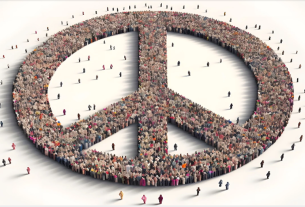(Brussels) – The European Union and most of its member states espoused a commitment to human rights and democratic values in 2022, and in some instances, lived up to those values, Human Rights Watch said today in its World Report 2023. But the EU and member states often fell short of translating this commitment into policies and actions, leaving the most marginalized and vulnerable people exposed to abuse.
The rapid and largely effective response of the EU to the mass displacement of Ukrainians stood in marked contrast to the abusive treatment of migrants and asylum seekers from other regions of the world at many of the EU’s other external borders. In an unprecedented move, the European Commission invoked the Temporary Protection Directive for Ukraine asylum seekers, demonstrating that when there is political will, the EU can come together to uphold its human rights values and protect those fleeing persecution, war, and violence.
“We’ve seen in the past year with Ukrainian refugees that with the right political will the European Union can meet human rights challenges with humanity and dignity,” said Benjamin Ward, deputy Europe and Central Asia director at Human Rights Watch. “The task for the coming year is for the EU to find ways to match that response in areas such as Hungary and Poland’s undermining of the rule of law, abuses at external borders against other refugees, and a cost-of-living crisis.”
In the 712-page World Report 2023, its 33rd edition, Human Rights Watch reviews human rights practices in close to 100 countries. In her introductory essay, acting Executive Director Tirana Hassan says that in a world in which power has shifted, it is no longer possible to rely on a small group of mostly Global North governments to defend human rights. The world’s mobilization around Russia’s war in Ukraine reminds us of the extraordinary potential when governments realize their human rights obligations on a global scale. The responsibility is on individual countries, big and small, to apply a human rights framework to their policies, and then work together to protect and promote human rights.
EU countries lagged behind on developing rights-respecting migration policies or sharing responsibility equitably for migrants, asylum seekers, and refugees from other countries. Over one year after the Taliban takeover, Afghan asylum seekers continued to face pushbacks at EU borders and decreasing refugee recognition rates across the EU. EU countries, including Bulgaria, Croatia, Cyprus, Greece, Poland, and Spain, used unlawful pushbacks and violence at their borders, while there was increasing evidence of the EU border agency Frontex’s complicity in border abuses, particularly in Greece.
Reception conditions for asylum seekers remained substandard in several EU countries, and the EU and its member states supported Libyan forces to intercept asylum seekers and migrants at sea and return them to horrific abuses in Libya.
EU institutions maintained some level of scrutiny on rule of law concerns in several EU member states in 2022 but failed to take decisive action amid increasing threats to the rule of law. In a positive development in December, the EU Council approved for the first time a decision under the rule-of-law conditionality mechanism to suspend 55 percent of EU cohesion funds budgeted for Hungary because of rule of law concerns leading to risks of corruption and conflicts of interest. On the contrary, there has been no progress on the consideration of the situations in Hungary and Poland under the Article 7 procedure, the mechanism provided by the EU treaty to respond to threats to EU values. The European Commission continued infringement procedures in Hungary and Poland but did not take new decisive action.
The EU warned about widespread racism and discrimination, including an increase in anti-Muslim and antisemitic attacks. EU member states were due to fully implement the EU Commission’s Anti-Racism Action Plan by the end of 2022. Due to the Commission’s lack of information as well as lack of transparency and non-inclusivity in national implementation processes, civil society has not been able to actively engage and support these processes. In several EU countries, including Hungary, Poland, Romania, and Italy, there was strong political rhetoric against a purported “gender ideology,” amplified in the media and public discourse and efforts to adopt laws specifically targeting LGBT people, and in case of Hungary women’s rights.
Rapidly increasing inflation, particularly for food and energy, and the long-term economic consequences of the Covid-19 pandemic affected rights of people living on low incomes or in poverty. The EU’s new directive on minimum wage and guidelines to member states to improve and modernize their social protection systems and guarantee an adequate minimum income were positive initiatives that if put into effect would help improve rights protections.
The European Commission in May initiated the REPower EU Plan, increasing the share of renewable energy but also proposing new investments in liquid natural gas (LNG) and fossil gas infrastructure, undermining emission reduction efforts. At COP27 in November, the EU announced plans to cut emissions by 57 percent by 2030, a 2 percent increase on its previous goal, but short of a 65 percent goal that environmental groups consider necessary to limit global warming to 1.5 degrees Celsius. The 27 members of the EU collectively are among the top 10 greenhouse gas emitters globally, contributing to the climate crisis around the globe.
EU’s diplomatic efforts in 2022 were dominated by its response to Russia’s invasion of Ukraine. The EU showed unprecedented resolve to secure support for UN votes condemning Russia’s actions. But the need to diversify energy supplies exacerbated strengthening ties with other authoritarian governments. The unanimity requirement in EU’s foreign policy remained a major obstacle to principled EU foreign policy, but the EU has played a leading role on several human rights resolutions at the UN and has used its trade leverage to encourage human rights reforms in some central, south, and south-east Asian countries.



